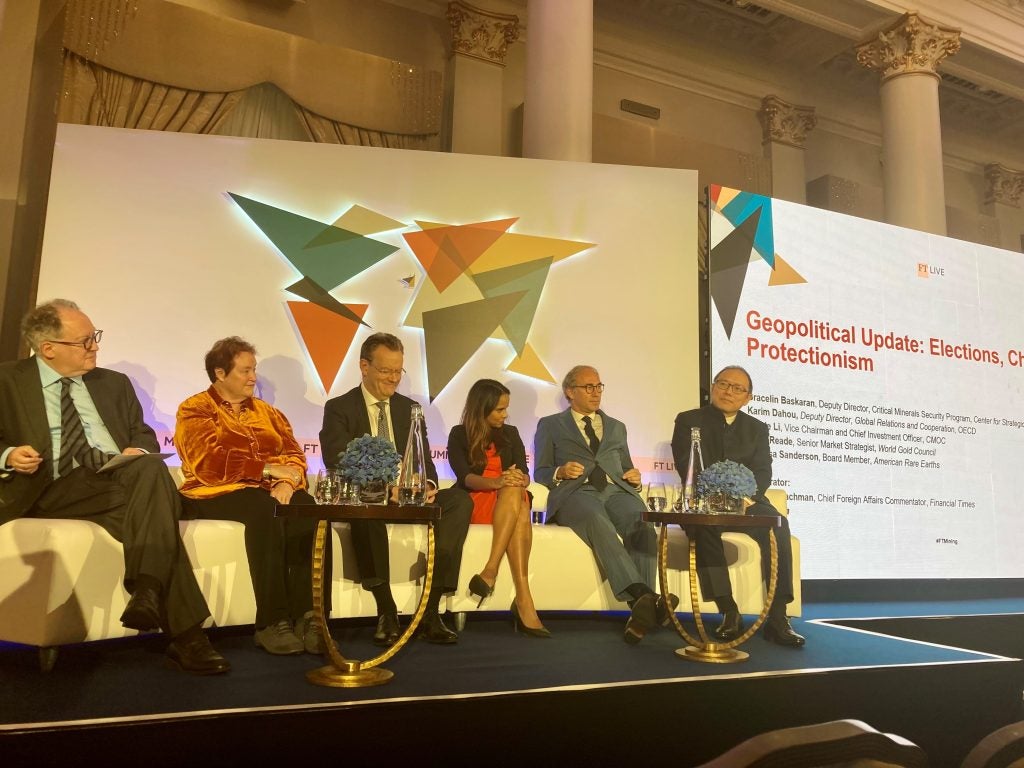At the opening of the Financial Times Mining Summit on 26 September in London, panellists discussed the geopolitical precipice that the mining industry is facing as demand for critical minerals increases and major elections unfold.
OECD deputy director of global relations and cooperation Karim Dahou stated: “There is enhanced polarisation that threatens global value chains and can lead to further fragmentation of international trade and investment. This depends on the west and east divide, but there is also a north and south divide.”
The role of China’s economic slump was a point of lively debate as countries look to reduce their reliance on the graphite, lithium and refined copper giant.
“As the Chinese economy has declined, there is a push from emerging markets to partner with new economies such as the Middle East and Japan,” commented Critical Materials Security Programme founding director Gracelin Baskaran. “We are seeing diversification and dispersion of critical minerals very quickly as a way to reduce risk.”
However, CMOC vice-chairman and chief investment officer Steele Li pushed back on arguments about China’s declining power.
“Geopolitics is not only about tension between the US and China. There is a lot of difficulty with regulatory approval when it comes to partnering with Western mining companies, so Chinese companies are looking at Africa or South East Asia instead,” Li said.
As China turns its focus away from the west, Baskaran emphasised the position of India as an alternative critical materials demand and supply driver. “As India pushes into the renewable energy transition, it has an aggressive domestic industrial policy and is the only emerging economy in a mineral security partnership with the US.”
With industry attention on the approaching US presidential election in November, Democrat candidate Kamala Harris announced plans on Wednesday (25 September) to create a US critical minerals national reserve.
Baskaran noted US efforts to prioritise national energy security but stressed that “mining is a long-term game”.
“Critical minerals have been a mainstay of Chinese foreign policy and domestic industrial strategy for decades, and it has just started in the US in the past five years,” she noted.
The mining industry’s lack of speed was another recurrent theme of the panel discussion, as the average lead time between exploration to commercialisation for projects is 15–16 years.
According to Dahou, protectionism and natural resource nationalism will only slow down and hinder the development of global critical minerals production.
“OECD countries need to demonstrate that they don't wash their hands of producer countries but engage in partnerships with these countries to build resilient supply chains,” he concluded.









